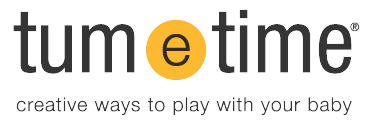June 20, 2015
By Dr. Meghan Lewis
Fabrics of fanciful flowers, pink plaid, or purple polka dot are delicately draped over the shoulders of hundreds of nursing parents on both sides of the Bay. Worn as a cloak of concealment, the Hooter Hider, a triangular breastfeeding blanket becomes an accessory to societal setbacks.
Sadly, even in the height of the Locavore, or Farm-to-Table movement (i.e. consuming local, naturally produced food), sales of the Hooter Hider continue to soar. No doubt, Giving-Breast-to-Baby offers the best, most nourishing noshings. So why then has feeding a nurseling in public become such a taboo that so many children are made to eat under a kind of tot tarp? Who wants to dine in a tent while eating out?
It’s simple: People feed their babies from their bodies. What does hiding it imply? Could parents be subsuming either personal, regional, or cultural standards by wearing their cleavage cover-up? Might they possibly be even unconsciously perpetuating a suppressive stigma of shame and discrimination?
When we gather with friends and family to share in a meal we also co-create and celebrate togetherness. Chestfeeding, in truth, is the initiation of these food sharing rituals; a practice to be revered not reviled. When babies feast, they source their nutrition from their parents simultaneously laying the neurological pathways for a lifetime of interconnection.
In considering the broad cause of the Hooter Hider, I see that it perhaps points toward a societal longing. Are we shielding our psyches from a kind of suppressed, primal desire for familial tenderness and symbiotic awe? Perhaps the Hooter Hider keeps under wraps a need that’s hardwired into our brains for a felt, body-based connection, one that gives a kind of assurance of personal survival. Perhaps this phenomenon has developed similarly to the way we do not often see the farms from which our food comes. There’s nothing innately inappropriate or offensive about natural nursing or, for that matter, tilling the soil. Originally, it was do or die.
Bra burning of the 1960’s represented the freedom to be natural, to no longer uphold stereotypes surrounding the breast. I am not suggesting to actually go about torching the titty tablecloth. (I am, however, thinking that they could be turned into something of practical use; perhaps made into menstrual pads, diaper wipes, or burp cloths).
Just as we have the right to choose how and where to birth our babies, we have the right to choose how and where and with what we feed them. Supportive spaces in the East Bay that openly embrace natural nursing include public libraries, (because they’re smart there), farmer’s markets, (because they know that naturally harvested, raw food is good for you), and, of course, the zoo, (because non-human mammals have mammaries too).
I wonder what would happen if breastfeeders, those willing and able, shook loose their trendy yet staid suckling sheets. Let’s really consider the benefits of beholding, not blanketing, baby’s inherent and blissful bond with the breast. One does not have to be a lactivist to view that breastfeeding is not only interpersonally precious and ideally nutritious for baby in the long-run, but it is a boost to public health as well. To this end, when considering natural nursing in public the question is simply this: Is it really too intolerable to bare?
Meghan Lewis holds a PhD from the Institute of Transpersonal Psychology in perinatal and somatic psychology and received a BA from the University of Michigan. She has a private practice, Integrative Perinatal Psychotherapy in the San Francisco Bay Area, specializing in preconception, pregnancy, birth, postpartum, and early parenting. She is also the founding member of LGBTQ Perinatal Wellness Associates, a group of LGBTQ-identified professionals dedicated to the health of the queer community’s growing families. Additionally Meghan is a monthly contributor to the East Bay Express’ parenting column, Kid You Not. www.meghanlewisphd.com
